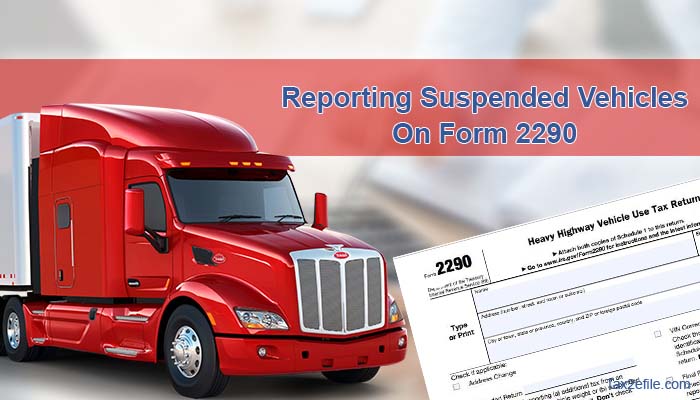- August 11, 2023

Tax deductions and credits are the facilities available to US taxpayers. If you are paying more taxes than you expected and you are worried about your money spent, then here is a comprehensive guide on how you can save money from excess taxation. From your education expenses to office expenses, you have the opportunity for deductions and credits. Tax2efile will unlock the secrets to maximizing your tax savings.
Table of Contents
Understanding the Differences
Before delving into the core topic, understanding the difference between deductions and credits is very important. A deduction is lower your taxable income, when comes to credits it will directly reduce the amount that you payable to IRS. To calculate the deductions, subtract the expenses from your income before applying to IRS. There are some common deductions available which include mortgage interest, state and local taxes, and charitable contributions. By using these common deduction advantages you can reduce the amount of tax you payable for.
There are some popular tax credits available which include the Child tax credit, earned income credit, and the American Opportunity credit for education expenses. This tax credit provides your tax liability in the form of dollar-for-dollar, which means if you qualify for a $500 tax credit, your tax liability will be reduced by $500. By understanding these differences you can strategically reduce the significant amount of tax that you are payable.
Top Tax Deductions for Individuals
As an individual tax pay, you are qualified to claim several deductions on your tax form. The most popular common deductions are standard deductions. Itemized deductions will let you deduct particular fees from your taxable earnings. Some common itemized deductions consist of scientific expenses, country and local taxes, loan interest, and charitable contributions. It’s critical to preserve certain information and receipts to confirm your itemized deductions. Another deduction that may be available to you is the deduction for pupil mortgage interest. If you paid interest on certified scholar loans in the course of the tax year, you may be able to deduct up to $2,500 of the interest paid. This deduction is a situation to income barriers, so make sure to test the IRS suggestions to peer in case you qualify.
Home-Related
If you own a home, there are several deductions and credits that you may be eligible to claim. One of the most significant deductions is the mortgage interest deduction. This deduction allows you to deduct the interest paid on your mortgage, up to a certain limit. For most taxpayers, the limit is $750,000 of mortgage debt for loans taken out after December 15, 2017. If you have an older mortgage or live in a high-cost area, the limit may be higher.
In addition to the mortgage interest deduction, you may also be able to deduct property taxes paid on your home. This deduction can be particularly valuable for homeowners in states with high property tax rates. Keep in mind that the deduction for state and local taxes, including property taxes, is capped at $10,000 for both single and married taxpayers.
If you made energy-efficient improvements to your home, such as installing solar panels or energy-efficient windows, you may be eligible for a tax credit. The Residential Renewable Energy Tax Credit allows you to claim a credit for a percentage of the cost of qualified energy-efficient improvements. The credit amount varies depending on the type of improvement and the year it was installed.
These are just a few examples of home-related deductions and credits that may be available to you as a homeowner. By exploring these options and consulting with a tax professional, you can ensure that you’re maximizing your tax savings and taking full advantage of the benefits of homeownership.
Education-Related
Education expenses can be a significant financial burden for many individuals and families. Fortunately, there are several deductions and credits available to help offset the cost of education.
One of the most valuable education-related deductions is the tuition and fees deduction. This deduction allows you to deduct up to $4,000 in qualified education expenses paid for yourself, your spouse, or your dependents. To qualify for this deduction, you must meet certain income limitations and other requirements.
If you paid interest on qualified student loans during the tax year, you may be eligible for the student loan interest deduction. This deduction allows you to deduct up to $2,500 of the interest paid on qualified student loans. Like the tuition and fees deduction, the student loan interest deduction is subject to income limitations.
For individuals pursuing higher education, there are also several tax credits available. The American Opportunity Credit and the Lifetime Learning Credit are two of the most popular credits. The American Opportunity Credit provides a credit of up to $2,500 per student for the first four years of post-secondary education, while the Lifetime Learning Credit provides a credit of up to $2,000 per tax return for any level of post-secondary education.
By taking advantage of these education-related deductions and credits, you can significantly reduce the financial burden of education expenses and make the pursuit of knowledge more affordable.
Health-Related Deductions and Credits
Healthcare expenses can take a significant toll on your finances, but there are several deductions and credits available to help ease the burden.
If you have high medical expenses, you may be able to deduct a portion of those expenses on your tax return. The medical expense deduction allows you to deduct qualified medical expenses that exceed 7.5% of your adjusted gross income (AGI). Qualified medical expenses can include everything from doctor’s visits and prescription medications to medical equipment and long-term care services.
If you have a high-deductible health insurance plan, you may be eligible to contribute to a Health Savings Account (HSA). Contributions to an HSA are tax-deductible and can be used to pay for qualified medical expenses tax-free. HSAs offer a triple tax advantage, making them a valuable tool for saving and paying for healthcare expenses.
For self-employed individuals and small business owners, there is also a deduction available for health insurance premiums. This deduction allows you to deduct the cost of health insurance premiums for yourself, your spouse, and your dependents as an above-the-line deduction, meaning you can claim it even if you don’t itemize deductions.
You can manage the rising cost of healthcare and maximize your tax savings by taking advantage of these health-related deductions and credits.
Business-Related Tax Deductions and Credits
If you’re a small business owner or self-employed, there are several deductions and credits available to help reduce your tax liability and support the growth of your business.
One of the most valuable deductions for self-employed individuals is the home office deduction. This deduction allows you to deduct a portion of your home expenses, such as rent or mortgage interest, utilities, and insurance, that are directly related to the use of your home office. To qualify for this deduction, you must meet certain criteria and maintain accurate records.
If you use your personal vehicle for business purposes, you may be able to deduct the expenses associated with its use. The standard mileage rate allows you to deduct a certain amount per mile driven for business purposes. Alternatively, you can deduct the actual expenses related to the business use of your vehicle, such as gas, maintenance, and insurance.
For businesses that make qualified research and development expenditures, there is a tax credit available called the Research and Development (R&D) Credit. This credit provides an incentive for businesses to invest in innovation and technological advancement. The R&D Credit can be a valuable tool for reducing your tax liability and fostering the growth of your business.
These are just a few examples of the business-related deductions and credits that may be available to you as a small business owner or self-employed individual. By working with a knowledgeable tax professional and staying informed about the latest tax laws and regulations, you can ensure that you’re taking full advantage of every opportunity to reduce your tax liability and support the success of your business.
The above-mentioned are the different types of deductions and credits you can use to minimize the tax liabilities.

